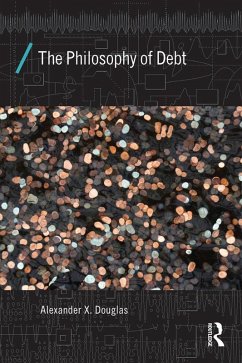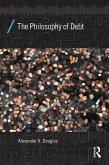This book seeks to accomplish two things. The first is to clarify the concept of debt by examining how the word is used in language. The second is to develop a general, principled account of how debts generate genuine obligations. This allows us to avoid settling each case by a bare appeal to moral intuitions, which is what we seem to currently do. It requires a close examination of many institutions, e.g. money, contract law, profit-driven finance, government fiscal operations, and central banking. To properly understand the moral and political nature of debt, we must understand how these institutions have worked, how they do work, and how they might be made to work.
There have been many excellent anthropological and sociological studies of debt and its related institutions. Philosophy can contribute to the emerging discussion and help us to keep our language precise and to identify the implicit principles contained in our intuitions.
Dieser Download kann aus rechtlichen Gründen nur mit Rechnungsadresse in A, B, BG, CY, CZ, D, DK, EW, E, FIN, F, GR, HR, H, IRL, I, LT, L, LR, M, NL, PL, P, R, S, SLO, SK ausgeliefert werden.
'This is an extraordinary project and I am of the firm opinion that this book is not only original and highly useful, but, on occasion, also brilliant.' - Mark Peackock, York University, Canada
'Douglas demonstrates how philosophical tools can help us untangle our confused understanding of debt. Making the right moral and political choices about debt depends on this crucial project. This is an important contribution to the metaphysics, politics, and philosophy of money.' - David G. Dick, Ph.D., University of Calgary, Canada
'The Philosophy of Debt is a book full of examples and insights from many disciplines: history, economics, linguistics and ethics, among others. This richness has to be acknowledged. It helps the reader to understand what debt is, and it sheds new light on the normative issues that lie at its heart.' - Louis Larue, Universite catholique de Louvain









